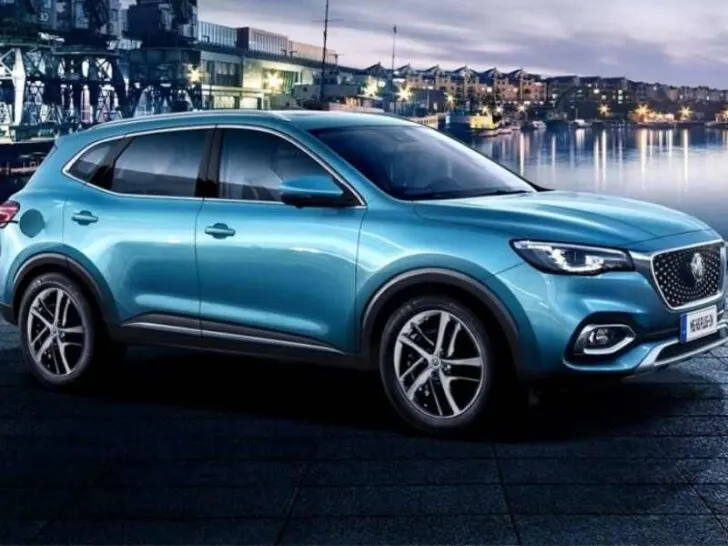Hybrid SUVs are a popular choice amongst customers because of their excellent mileage and saving in operational costs. Moreover, with enhanced federal government requirements to protect the environment, automakers launch hybrid models to fulfill the EPA fuel economies.
Are Hybrid SUVs Worth It? Hybrid SUVs are a good option in the long run by saving operational costs. Moreover, they have fewer CO2 emissions resulting in government incentives for environmentally friendly operations. Hybrid SUVs are also reliable and have comfortable rides due to their noise-free operation. However, they require specialized maintenance skills because of hybrid systems. Moreover, they have a higher initial price and poor towing and load-hauling specifications.
This article will describe the pros and cons of buying and operating a hybrid SUV. In addition, we will discuss all aspects affecting its cost over its operational cycle and other factors that help determine its potential as a passenger vehicle.
Why are Hybrid SUVs worth it?
Hybrid SUVs have many benefits over their counterparts with internal combustion engines (ICE). First, it helps the buyers to have a clearer picture of the situation, assisting them in selecting it as their vehicle of use.
Good mileage
The hindrance to the popularity of hybrid SUVs was the expensive batteries and their lesser charge storage capacity. As a result, they have 3-4 mpg better fuel economy in combined highway and city areas than the same models with IC engines only.
This saving factor increases to 6-7 mpg in city areas where you drive slower and only the electric motor operates to run the vehicle.
If you are an office-going person who travels 50-100 miles daily on busy roads, it will save you a few hundred dollars per annum in fuel costs.
Discounted insurance
With the increasing popularity of hybrid vehicles, insurance companies offer discounted offers for insurance premiums. The few possible reasons are safety records and the enhanced reliability of such models.
Moreover, it also depends on the model and its year of manufacturing. Few vehicles have a good track record regarding road safety and major parts failures, and you will get a reasonable insurance rate from the company.
In comparison, lesser-known models will cause you to pay more insurance due to higher initial costs and a lack of data regarding average repair costs per annum.
Government incentives
Government offers discounts on taxes for buying all-electric or plug-in hybrid vehicles. For example, the US federal government has announced tax credits of up to $7500 depending on the vehicle’s initial cost.
For example, the 2021 Ford Escape is a compact crossover plug-in hybrid, and it has a total tax credit limit of $6500-$7500 depending on its price according to the options available. Another example is the 2022 Subaru Crosstrek Hybrid SUV with a tax discount of $4500-$4600.
Regenerative braking
These vehicles use a mechanism known as regenerative braking to slow down or stop them when the driver applies brakes or releases foot from the accelerator pedal.
The vehicle’s motor acts as a generator and uses its moving kinetic energy to charge the batteries during the process. This phenomenon saves energy lost during braking in terms of friction and increases the life of brake parts, and therefore these SUVs are better in the rain.
Brakes tend to last longer than conventional models. Therefore, you will save a few hundred dollars and your time spent doing the said routine maintenance job. It will also save fuel costs as the engine has to work less to charge the batteries.
Environmental protection
These are good for the environment due to less fuel consumption and reduced amounts of carbon emissions. You can even make the emissions zero by traveling for shorter distances at slower speeds and using renewable energy sources to charge the vehicles.
Therefore, it is the most significant motive behind the government incentives and infrastructure development to promote and popularize hybrid or electric models.
Hybrid vehicles act as a bridge between true electric and internal combustion engines using fossil fuels. They are a symbol of transition from one type to another.
Therefore, most automakers are discontinuing their diesel and gasoline-powered models and introducing hybrid models as a stepping stone. Standard SUVs can damage the environment, but by buying hybrid vehicles, you are serving the great cause of protecting the environment.
Better resale value
Various US states have put bans and extra taxes on diesel and gasoline-powered models. Moreover, there is a continuous increase in gasoline prices with time.
Due to their increased demand, they have a good resale value. It gives you an edge and eases to decide to buy it as you can sell it by recovering your investment if you don’t like its features.
Government incentives and permissions to drive on high occupancy vehicle (HOV) lanes are also factors for the high resale value. In times of peak traffic hours, it is a practical option to drive on those specific lanes to travel faster.
Reliable vehicles
SUVs are highly reliable and have comparable performance with gasoline or diesel-powered models.
But that is not a serious concern as most manufacturers offer warranties of 8-10 years and 80,000-100,000 miles of driving range. That is far more than conventional internal combustion engines and their systems.
For example, Toyota offers a 7-9 years warranty for its hybrid version, including replacing battery packs or 95,000-105,000 miles of drive, whichever comes first. Therefore, you can purchase them without fear of battery replacement as the manufacturer has got your back to do this for you.
Comfortable ride
These latest models use an electric motor and an engine to drive the wheels. Electric motors have a quieter operation due to lesser mechanical movements and therefore offer a smoother ride.
Moreover, manufacturers use sophisticated parts to get the same performance with better fuel economy. Moreover, transmissions are also of innovative designs for smooth shifts for both electric motor and engine. It results in an overall comfortable ride with a noise-free operation for the driver and passengers.
Time-saving
Due to the excellent fuel average, you need to make fewer trips to gas stations resulting in more available time for you and your family.
Moreover, due to fewer mechanical parts, you will need less time in the workshop for its regular preventive maintenance tasks, including oil change, filter change, and brake pads replacement.
Access to HOV lanes for plug-in SUVs is also another vital feature resulting in time-saving. You will be able to drive quickly on these special lanes in peak traffic hours and crowded areas.
Why you should not buy hybrid SUVs?
Despite numerous benefits and popularity of hybrid SUVs, they have few drawbacks compared to IC engine models. These are the factors responsible for drivers sticking towards conventional fossil fuel-powered vehicles.
Specialized maintenance
These vehicles have both electric and mechanical systems to power their drivetrain. Therefore, you need to find a mechanic having specialized skills to carry out the maintenance jobs efficiently. In the presence of fewer expert mechanics, you will end up paying higher labor costs per hour.
Moreover, in case of damage to any part, their replacement is pretty much expensive. Despite being highly reliable, models older than 10 years need major repair issues involving thousands of dollars for spares if any system needs replacement.
Higher initial price
SUVs have different systems and parts, including an electric motor, battery pack, powertrain to cater to the engine and electric motor, and extra wiring. Therefore they have a higher initial cost of $3000-$10,000 more than their conventional counterparts.
The significant increase in the price is due to the increased strength of the frame to manage the battery pack, the cost of the battery pack itself, and its cooling system.
All these components are responsible for the increase in the overall initial cost of the vehicle. Higher initial costs also result in higher insurance prices for some models.
Battery replacement
Manufacturers offer exceptional warranties for several years, including the replacement of batteries during the period. But if you buy a used model with an expired maintenance period and need to replace the battery pack, it will cost you a considerable sum of money.
For example, the average cost of its replacement is $5000-$7000. Furthermore, it can tend to increase depending on the particular model, type, and charge capacity of the pack.
Therefore, even after 10 years, its replacement will eliminate all the savings you made in fuel costs, and it is the potential factor keeping drivers away from purchasing them.
Lower performance
SUVs have comparatively higher weights due to the inclusion of battery packs. Moreover, designers make each part as energy efficient as possible to improve the fuel economy that is the main plus point.
However, it results in a lower performance like speed, acceleration, and other parameters. Therefore, despite few models with higher performance indicators, most of them cannot compete with their contemporaries having gasoline or diesel-powered engines available with increased power and torque.
Higher fuel consumption in cold weather
Batteries used in hybrid SUVs provide energy to the electric motors by the process of a chemical reaction. Therefore, they need the optimal temperature to provide total energy. In icy conditions, they will take time to warm up and provide ample amounts of power.
Therefore, vehicles rely on the engine to fulfill power requirements. Consequently, you will not benefit from batteries to improve the fuel economy in freezing temperatures.
However, the latest models have battery packs’ temperature control systems, enabling them to provide power as soon as required after starting the engine.
Moreover, while driving on the highway at higher speeds, the internal combustion engine remains active most of the time. Therefore, its miles per gallon rating remains lower in such conditions and has the same emissions as conventional models.
Poor towing and hauling specifications
Both the electric motor and an internal combustion engine provide the total power to the SUV. Therefore, they will not give the high combined torque required for towing and hauling applications.
However, few latest models have significant towing capacities of 4,000-5,000 lbs due to higher engine ratings.
7 Examples of Hybrid SUVs available in 2021
There are several hybrid SUVs available from leading auto manufacturers, and their numbers are increasing with time.
Here is a table showing a few models from various manufacturers, their prices, and their ICE counterparts. These prices are for base versions and can vary with trim levels and the addition of other packages.
|
Hybrid SUVs Model |
Base Price |
Price of its Conventional Model |
|
Ford Explorer |
$49,000-$50,000 |
$32,000-$34,000 |
|
Ford Escape |
$28,000-$29,000 |
$24,000-$25,000 |
|
Toyota Highlander |
$38,000-$39,000 |
$34,000-$35,000 |
|
Toyota Rav4 |
$28,000-$29,000 |
$26,000-$27,000 |
|
Kia Sorento |
$33,000-$34,000 |
$30,000-$31,000 |
|
Hyundai Santa Fe |
$33,000-$34,000 |
$27,000-$28,000 |
|
Honda CR-V |
$30,000-$31,000 |
$26,000-$27,000 |
Conclusion
Hybrid SUVs have advantages, including better fuel economy in city areas, prolonged warranties from manufacturers including all parts, low emissions, and tax credits from the government.
They have few downsides, including higher initial costs, complex maintenance, and decreased performance with increased weight. It is up to the customer to buy them according to their preference and intended usage.
Related Articles:

